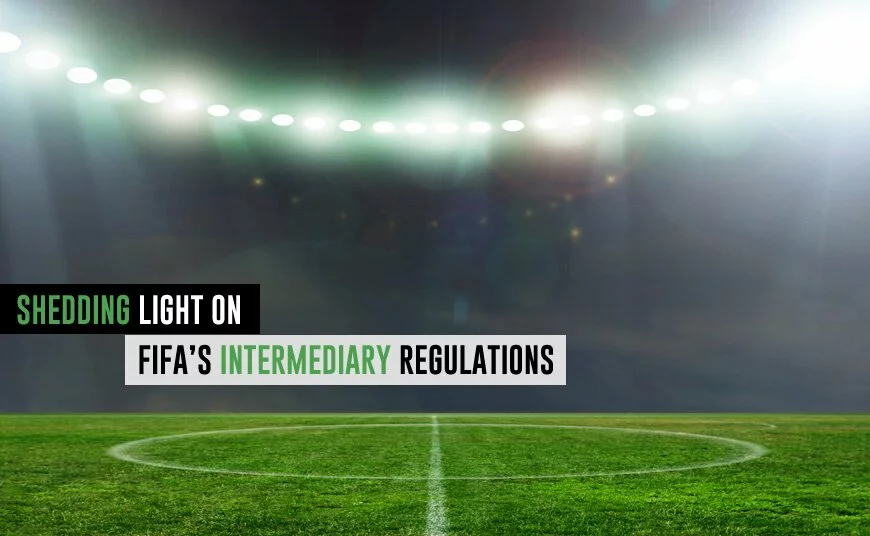Dan Lowen spoke at the Player Contracts 2015 conference at Wembley Stadium. He reflected on the first seven months of the intermediaries regime and, after running through the English FA’s Regulations on Working with Intermediaries, turned to the way in which other national associations have chosen to implement the intermediaries regime domestically.
Some national associations have chosen merely to implement the FIFA Regulations with additions where appropriate. For example, the Scottish FA’s Regulations are based very closely on the FIFA Regulations, adding a dispute resolution procedure under the auspices of the Scottish FA. The US Soccer Federation refers its participants to the FIFA Regulations, a link to which is on US Soccer’s website, with a procedure to register with the Federation. The fee is fairly modest: $400 (or $50 if previously licensed) with a $50 annual renewal fee.
In Italy, registration as an intermediary with the FIGC lasts for one year and costs Euro 500, but is only open to Italian residents. Overseas intermediaries are required to use the services of an Intermediary resident in Italy, unless they are registered with a football association with which the FIGC has “reciprocity”.
The Football Federation of Ukraine has introduced two registration options: a Permanent Intermediary Certificate, which is only open to Ukrainian citizens who have passed a 15 question exam held in the Ukrainian language and paid a US$870 application fee; or a Temporary Intermediary Permission for a particular transaction, which potentially enables a foreign intermediary to represent a player moving to a Ukrainian club. Another noteworthy feature is that a representation contract with a minor may not exceed 1 year.
The Romanian Football Federation has departed in a different direction, broadening the scope of its Regulations to also cover the representation of coaches and club officials, whilst excluding the player’s family or lawyers from the requirements of the regulations.
The Bulgarian Football Union has also extended its regulations to cover representation of coaches. In order to register, an applicant must have either a Masters degree or a secondary education diploma and proof or three years of professional service.
The Slovak Football Association conducts a personal interview with applicants, discussing national and international football regulations, contract law and the moral aspects of intermediary activities.
The Brazilian Football Confederation’s Regulations require that an intermediary have professional indemnity insurance. Intermediaries must have professional liability insurance cover for damages up to €47,000.
The Argentine Football Association requires applicants to submit a written application and foreign applicants will only be accepted if they have residence in Argentina. Applicants are summoned for a personal interview which lasts for between 90 and 120 minutes. Successful applicants pay a registration fee of US$1,000 and annual renewal fees of US$500. As in Brazil, intermediaries must have professional liability insurance cover, but in Argentina the minimum level of cover is €300.000.
Under the Japan Football Association’s regulations, if a contractual negotiation involves a dispute or if the occurrence of a dispute is reasonably foreseeable, intermediaries are prohibited from being engaged on the transaction and must immediately cease to act unless they are admitted as attorneys. Dual representation, or any form of shared interests with the other party’s representative, is not permitted.
Even if one looks only at FIFA’s 3% recommended benchmark for commission, it is abundantly clear that there now exists wholesale inconsistency between different countries’ domestic regulations. For example, in Argentina the regulations are silent on commission levels. The Cypriot and Serbian associations have capped commission at a maximum of 3% (rather than merely recommending that level as per the English FA). The Swiss Football Association has introduced a 5% cap, the Bulgarian association a 7% cap and the Croatian and Ukrainian Football Federations a 10% cap.
And as if the situation wasn’t disparate enough, the French Football Federation has simply rejected outright the new regime on the basis that the Code du Sport requires a player representative to hold a specific work licence in order to represent a sportsman in France. As such, a licence is a prerequisite for athlete representation and the regulations have therefore not been modified.
In conclusion, it’s fair to say that the current position amounts to a rather confusing regulatory patchwork quilt, which of course inevitably causes practical problems for intermediaries seeking to provide player representation services internationally. Read also about football index.
For more information, or for advice on how to navigate this complicated regulatory landscape, please contact us.



